-
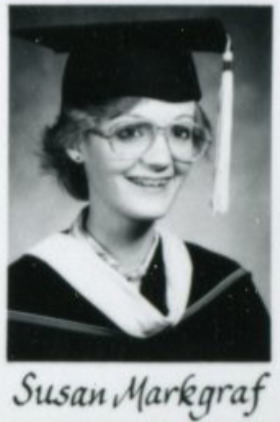
Susan Johnson Markgraf was a public relations and journalism major and graduated from Mundelein in 1983. She had a publication in the Student Magazine Review, worked as an administrative assistant to Vera Hastings in the Chemistry department, operated an elevator in the Skyscraper, and lived in Coffey Hall for three years. She talks about how she greatly respected and was influenced by her professors, especially Betty Prevender, her journalism professor. They gave her the confidence in realizing that she could do anything! Sue also fonding remembers studying on the rocks by the lakeshore, going to Hamilton’s for burgers and pizza with her friends, the engagement ceremonies held in Coffey Hall, and the bond she created with her floormates. Sue asserts that her time at Mundelein significantly prepared her for her professional life in public relations and media marketing. There are lessons and memories from Mundelein that she still utilizes in her professional career to this day.
Content Note: These collections may include language or descriptions of events that may be upsetting to some users.
-
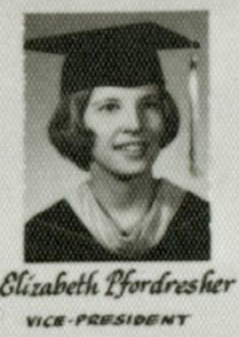
Elizabeth Pfordresher Havey was an English major and education minor, graduating from Mundelein in 1969. Beth shares memorable stories about her freshman year English teacher, Paul O’Dea, and her sociology professor, Ann Matasar. When talking about her time living at Coffey Hall, Beth talked about the sense of community she shared with those on her floor that included borrowing clothes and participating in candle-lighting ceremonies when someone got engaged. Beth talks of being constantly busy with her studies, yet finding time to participate in Student Government—first as a representative and then as the Vice President in her senior year. She also shares memories of participating in the chorus, Mundelein Review, and the talent show. Beth also talked about working for the wonderful Carmen Fernandez in the Alumnae Office where she filed papers, made phone calls, and sent out mailings. Beth discusses her experiences during her six-week student teaching at Lane Tech, one of the best all-boys school in Chicago. Overall, Beth loved her time at Mundelein and can’t say enough good things about it. She went on to teach at Bloom Township High School in Chicago Heights, earned her nursing degree, and is now a writer.
Content Note: These collections may include language or descriptions of events that may be upsetting to some users.
-
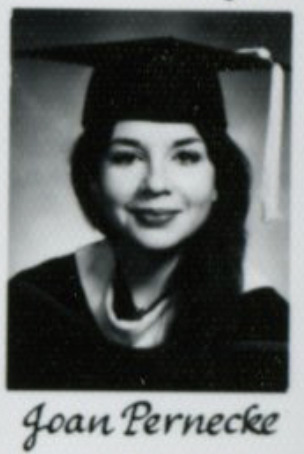
Joan Pernecke was born and raised in Southeast Chicago, Il where she attended several Catholic schools including St Felicitas, Queen of All Saints, Saint Scholastica, and Montini Catholic High School. Her family eventually made the move to the North side of Chicago. While in high school, Joan was able to earn sixty college credits, which was an influence in her choice of Mundelein College. When she met with Sister Jean Schmidt, then Dean of Academics, Joan convinced Sister Jean to allow the credits to be applied to her degree. Joan was admitted as a junior to Mundelein in 1975.
Once enrolled, Joan majored in social studies and history. During her first year, Joan lived in Coffey Hall and worked part-time for a professor in the Fashion and Design department and in the Learning Resource Center (LRC). While at Mundelein, Joan participated in a group called Social Interests Society Toward Education Renewal (S.I.S.T.E.R.) which did advocacy work for the environment and migrant worker’s rights which met in Piper Hall.
While attending classes at Mundelein, Joan recalls the interaction of Mundelein students with male students of Loyola during an outbreak of street crime. Joan befriended a group of male students from Iran and fondly remembers her interactions with them during a time of social and political unrest in Iran. Joan graduated from Mundelein in 1977.
During the interview, Joan also recalls meeting the Manson Family and recalls learning their identities while attending a Loyola fraternity event. Additionally, Joan remembers attending a reunion event and reconnecting with Sister Jean following her 100th birthday, where Sister Jean still recalled their first meeting and Joan’s time in Coffey Hall.
Content Note: These collections may include language or descriptions of events that may be upsetting to some users.
-
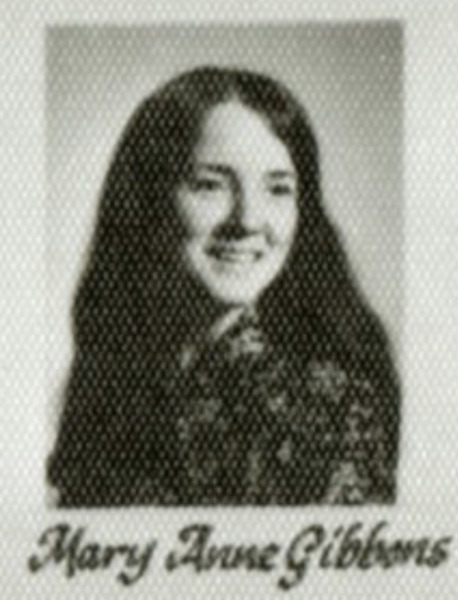
Mary Anne Gibbons, class of 1972, talks about her prospective visit to Mundelein which happened to be the same weekend Martin Luther King Jr. was assassinated in April of 1968. Despite this tenuous time, it did not deter her from choosing Mundelein for college. Mary Anne studied psychology and education, but she realized towards the end of her college career that she did not want to be a teacher. Mary Anne was very active during her time at Mundelein and remembers specifically during the spring of 1967 that classes were cancelled so that the students, nuns, faculty could participate in the anti-Vietnam war protests and decide what direction and action Mundelein should be taking. Mary Anne noted that Sister Ann Ida was very involved on campus and that she had some wonderful interactions with her.
Fond memories Mary Anne has include her late night talks with her friends in Coffey Hall’s lounge and being invited to a lot of parties and balls in Chicago. She also discusses the changes of rules on campus through her years at Mundelein such as curfews, dress code, and having boys in the dorm. One of the things Mary Anne appreciated most about the faculty at Mundelein was how they fostered a sense of self-confidence women. They took their students seriously and helped them realize that they could do anything.
Content Note: These collections may include language or descriptions of events that may be upsetting to some users.
-
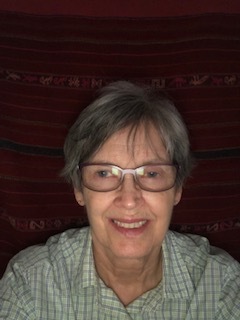
Mary Krieger, Mundelein class of 1970, was interviewed by Loyola graduate student, Casey Terry. Krieger shares that the “very best thing” at Mundelein was the teachers and reflects on Mundelein’s influence upon her personal growth. As a commuter student who also worked one or two days a week proofreading at an accounting firm in the Loop, Krieger mused that these had resulted in a “very truncated college experience”. Krieger discusses the anti-war efforts she was involved in and how she had been influenced by her parents in wanting to take a stand against the Vietnam War. She also shares her “terrifying” experience of the Poor People’s Campaign, which had turned violent. Krieger finishes by reflecting on some of her favorite classes at Mundelein and emphasizing that the teachers were the most important part of her college experience.
Content Note: These collections may include language or descriptions of events that may be upsetting to some users.
-
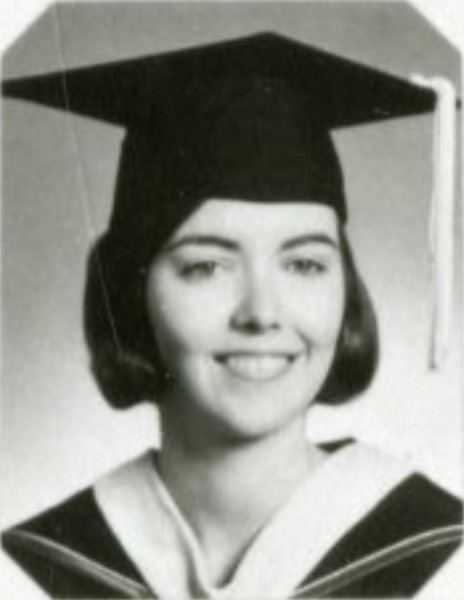
Diane Lally Culhane, Mundelein class of 1968, was interviewed by Loyola graduate student, Scarlett Andes. Lewis discusses how Mundelein College allowed her to explore her faith and enabled her to be confident in expressing her views and in her later career. Lewis characterizes her time at Mundelein as one shaped by three major events — the assassinations of Martin Luther King, Jr., and Robert Kennedy, and the Vietnam War. In particular, she reflects on how the mid 1960s marked a transition away from the “seeming safety” of the 1950s to a time when one felt like they were “walking on eggshells”. Lewis also outlines her involvement in student activist efforts such as Students for McCarthy and the Chicago Area Lay Movement.
Content Note: These collections may include language or descriptions of events that may be upsetting to some users.
-
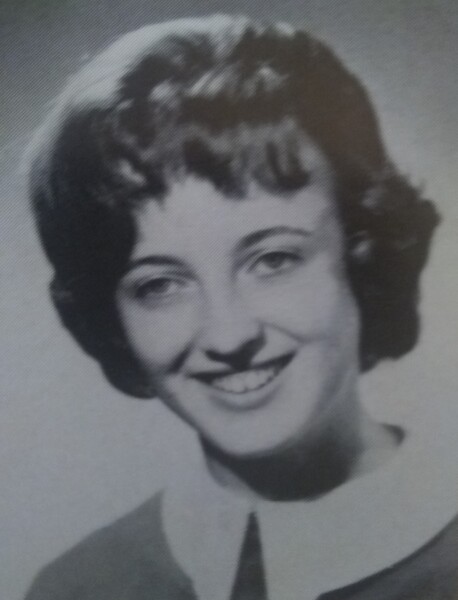
Judy Ewing Lewis, Mundelein class of 1966, was interviewed by Loyola graduate student, Miranda Ridener. Lewis reflects on the math and psychology courses she took at Mundelein and how those, coupled with the computer coding classes she took at Argonne National Laboratory, prepared her for a career in computer software design and programming. She also reflects on residential life, her roles in student government and interactions with students from the University of Notre Dame and Loyola University Chicago. This interview also includes Lewis’ reflections on the influence of the BVMs’ activist efforts and Catholic action upon her continued involvement in activism.
Content Note: These collections may include language or descriptions of events that may be upsetting to some users.
-
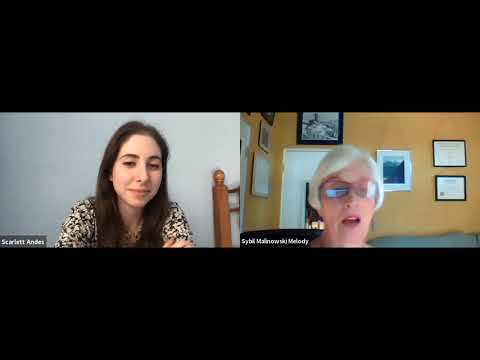
-
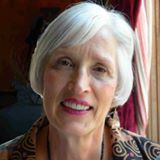
Sybil Malinowski Melody, Mundelein class of 1970, was interviewed by Loyola graduate student, Scarlett Andes. Malinowski Melody discusses her studies in the social sciences at Mundelein and particularly appreciates the broad spectrum of classes she was able to take part in. Malinowski Melody characterizes the changes at Mundelein she witnessed during the 1960s as a transformation in which the school went from a “finishing school for young girls” to a “real academic force.” Melody outlines the academic accomplishments and inspiring pedagogy of her various professors, including Dr. Irene Meyer and Dr. Russel Barta. This interview also includes Malinowski Melody’s experiences as a student worker in rehabilitation at the Chicago State Mental Hospital.
Content Note: These collections may include language or descriptions of events that may be upsetting to some users.
-
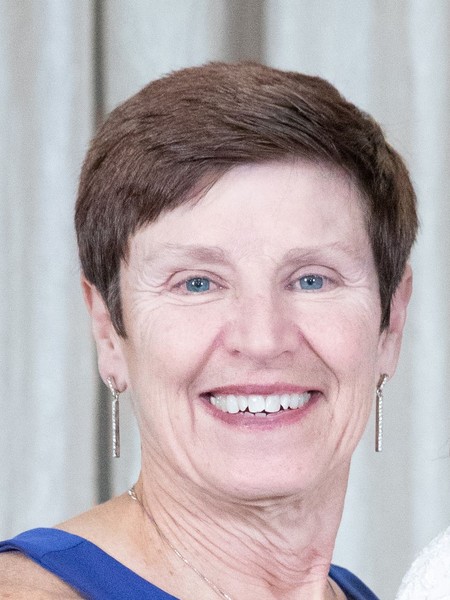
Chicagoan, Cathy McLeod, Mundelein class of 1971, was interviewed by Loyola graduate student, Regina Hong. McLeod was a gifted math student who attended high school classes at the Illinois Institute of Technology. McLoed recalls that her classes were engaging, and her teachers, especially her instructor in argumentative writing, taught her critical thinking skills. During her tenure at Mundelein, McLeod opened a coffee house for her classmates, volunteered for Upward Bound, a summer program for inner city youth, and worked at an IIT affiliated computer center. Many changes took place during McLeod’s time as a student at Mundelein during the late 1960s and early 1970s. Those transformations, including a push for social justice and student activism after the 1970 shooting at Kent State University, framed McLeod’s experiences as a student at Mundelein.
Content Note: These collections may include language or descriptions of events that may be upsetting to some users.
-
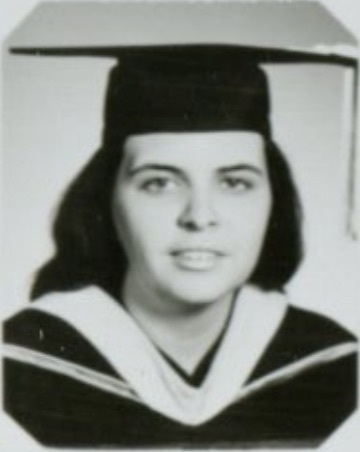
Rosemary Calamia Mahany, Mundelein class of 1971, was interviewed by Loyola graduate student, Regina Hong. Mahany moved from New York City to study at Mundelein. Her experiences as a student were greatly influenced by her activism. When Mahany arrived at the college, she was politically conservative and served as the president of the Young Republicans campus group. Mahany recalls that within one or two years, she became involved in the antiwar movement and along with several of her classmates petitioned to serve as a student teacher in Chicago’s inner city rather than at the suburban schools where they would typically be assigned.
-
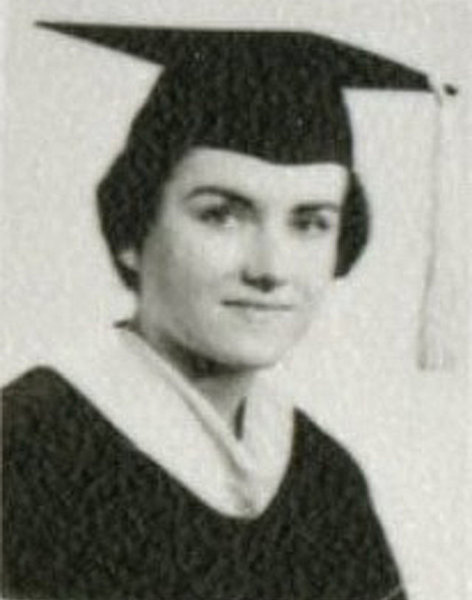
Brigid Duffy Gerace, Mundelein class of 1960, was interviewed by Loyola graduate student, Regina Hong. Gerace recalls that during her years as a student, she juggled classes and employment. She was no stranger to hard work. From the time she was young, Gerace held a variety of jobs from hauling coal and selling freezers to her stint as an elevator operator at Marshall Fields. During her student years, Gerace was involved in the drama department and was an actor and crew member of the Mundelein drama group, the Laetare Players. One of Gerace’s most vivid recollections of her student life at Mundelein was the “magical” marble steps of the skyscraper building which no one ever used except for at graduation. Gerace finishes the interview by recalling her post college career as a Goodman School of Drama graduate student and her years as a teacher and well-established Chicago actor.
Content Note: These collections may include language or descriptions of events that may be upsetting to some users.
-
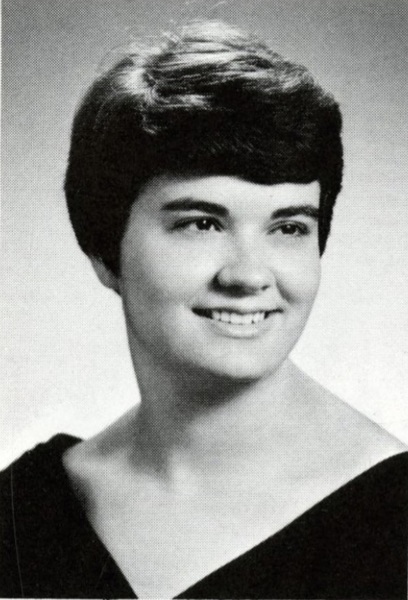
Mary Frances Consola, 1968 Mundelein College graduate, was interviewed by Loyola graduate student, Regina Hong. As a student, Consola organized variety shows and participated fully in her dormitory life at Northland Hall and Coffey Hall. Consola recounts her rigorous coursework in mathematics and economics, her study group called “Null Set,” and the breaks she and her classmates took on the lake. Consola also discovered literature and theology at Mundelein and characterizes her student years as “the full college experience.” The 1962-1965 second Vatican Council had a major impact on her life during her time as a student. Consola concludes the interview by recollecting her encounters with other Mundelein alumni through the years.
Content Note: These collections may include language or descriptions of events that may be upsetting to some users.
-
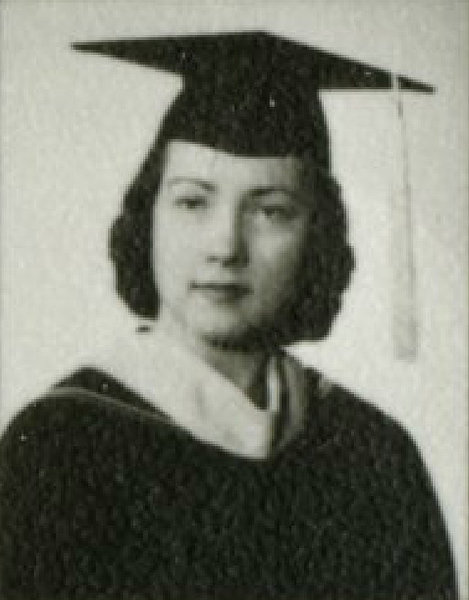
1959 Mundelein College graduate, Marge (Marguerite) Phillips Britton discusses her student life and subsequent career with Loyola graduate student, Scarlett Andes. Britton describes her English and journalism classes and her teachers, in particular the nuns, whom she characterizes as professional women. During her college years, Britton participated in multiple extracurricular activities including the debate team and the Skyscraper student newspaper. Britton’s social life at Mundelein is featured in her story, including her vibrant encounters with other students and faculty in Piper Hall, the Mundelein building’s elevators, the swimming pool, and the tea room. Britton recounts her early career as both a journalist and a mother and completes the interview by discussing women’s expanding career options.
Content Note: These collections may include language or descriptions of events that may be upsetting to some users.
-
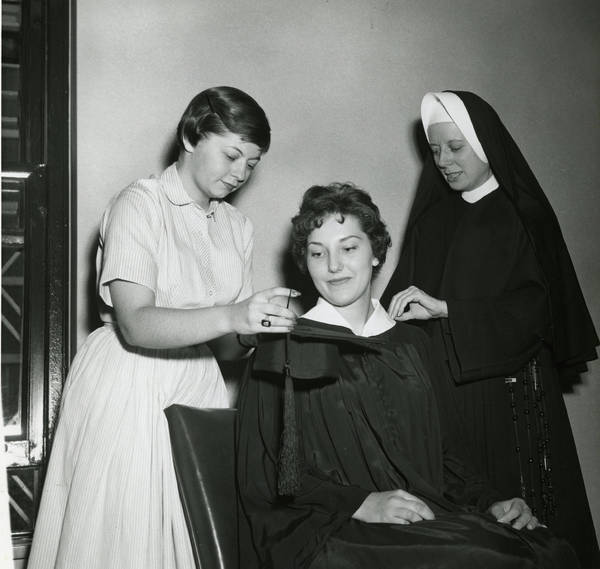
Sister Mary Cramer, BVM describes the impact of Mundelein College upon her life in an interview with Angela Abbinante. Sister Mary grew up in Chicago and was part of the first class of students at Mundelein. The college had a sense of community early on with various clubs and activities. Sister Mary taught in Iowa, Illinois, and South Dakota. She returned to teach at Mundelein in 1953 and served as the Dean of Students until retiring in 1968. Sister Mary finishes the interview by explaining her service and advocacy for the elderly community after leaving Mundelein.
-
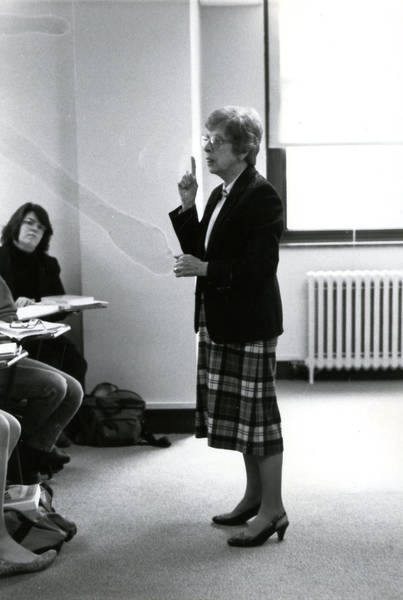
Sister Joan Frances Crowley, BVM was born Dorothy Crowley in Chicago, Illinois in 1919. Sister Joan Frances received a bachelor’s of arts in History from the College of Great Falls (now the University of Montana) and earned a master of arts in History from Marquette University. Sister Joan was affiliated with Mundelein College from 1962 to 1991, holding the positions of Assistant to the Dean in Residency, Instructor of History, Assistant Professor of History, and Professor of History. Additionally, Sister Joan Frances was a published author, Fulbright scholar, and renowned educator. She passed away in 2009 in Dubuque, Iowa.
-
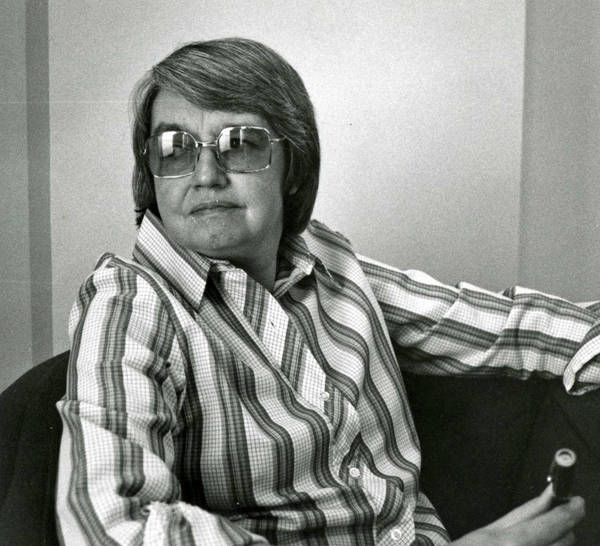
Sister Mary DeCock, BVM reflects on her childhood in DeWitt, Iowa and her undergraduate experiences at Clarke College. Though Sister Mary describes herself as “not particularly attracted to religious life,” she took vows and joined the BVMs shortly after graduation. Sister Mary describes her involvement with a one-time ceremony at Mundelein in which she and others “affirmed the diaconate” of a fellow sister, Rose Marie Lorentsen. The ceremony was a “positive protest” to male only ordination. Sister Mary discusses her involvement with global justice activism and her embrace of liberation theology. She is especially passionate in her depiction of the Mundelein affiliation with Loyola and feels that it reflected a total lack of communication.
-
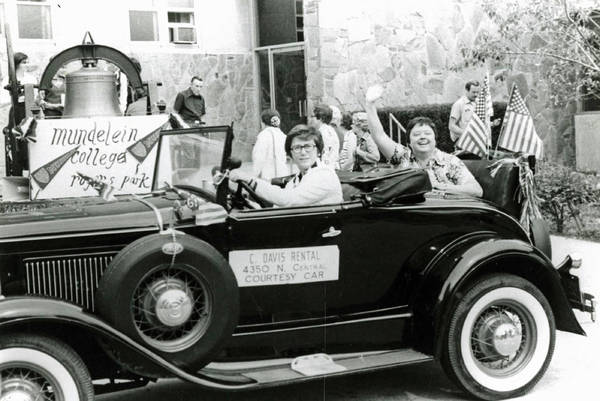
Sister Mary Pat Haley, BVM describes her life path to interviewer Cheryl Lemus. She explains that she spent a happy childhood in Des Moines, Iowa, entered the BVMs in 1952, and received her bachelor’s degree from Clarke College. She arrived at Mundelein College during a period of political turmoil in the United States in 1966. Sister Mary Pat was initially an instructor at Mundelein, became its Chief Academic Officer, and eventually served as the college’s Dean. She believes that Mundelein’s sense of community was lost with its affiliation to Loyola University. Sister Mary Pat ends by explaining the importance of engaging students.
-
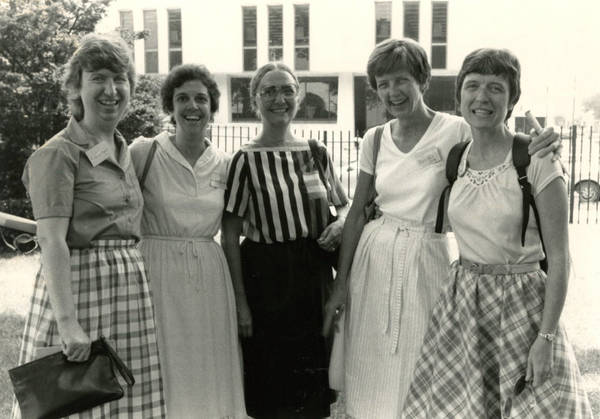
Sister Ann Harrington, BVM discusses her experiences as a professor for the Mundelein College Weekend College during the 1970s. Sister Ann took part in a special program called “Strategies for Learning” which utilized pedagogical methods such as “Autobiography” and a “How to Read a Book.” The program used books such as How to Read a Book by Mortimer Adler, and Sigmund Freud’s Civilization and Its Discontents. Sister Ann concludes her interview by discussing the effects of the Loyola-Mundelein affiliation on the Mundelein Weekend College. She notes that the affiliation weakened the community bonds among the students of the Weekend College which led to its eventual demise.
-
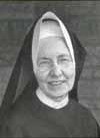
Sister Mary Benedict, BVM was a professor and chairperson of the departments of education and psychology at Mundelein College. Sister Mary Benedict began teaching at Mundelein in 1934 and left in 1957. Sister Mary Benedict recounts the struggles she experienced as a sister undertaking graduate studies in psychology in the 1930s because church authorities looked askance at the discipline of psychology at the time. Sister Mary Benedict emphasizes the spiritual approach to life characterized by acceptance and recounts her application of that principle in various circumstances. Sister Mary Benedict relays vivid recollections of several of her fellow faculty members including, Sister Justicia Coffey, Sister John Michael Dee, and Sister Augustina.
-
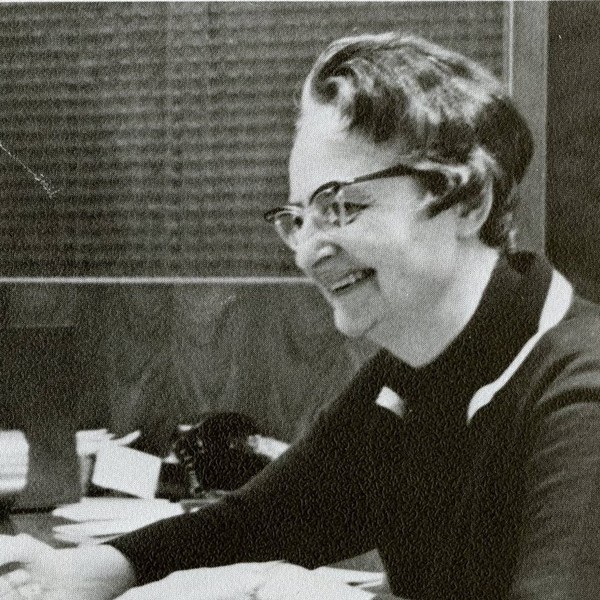
Sister Jean Dolores Schmidt, BVM was born in San Francisco in 1919. Sister Schmidt taught in the education department at Mundelein from 1961 through its affiliation with Loyola University Chicago in 1991 where she continues to serve as a chaplain. In this interview, Sister Jean Dolores relays her educational and teaching background before her arrival at Mundelein, including her experiences as a teacher for the San Fernando Valley St. Charles School where celebrity families, such as the Hope and the Crosby children attended. Sister Jean Dolores recalls her busy life as a teacher and administrator at Mundelein and describes it as having “several balls in the air.” Sister Jean Dolores recounts the many changes that Mundelein students and faculty experienced during the tumultuous decades of the 1960s and 1970s.
-
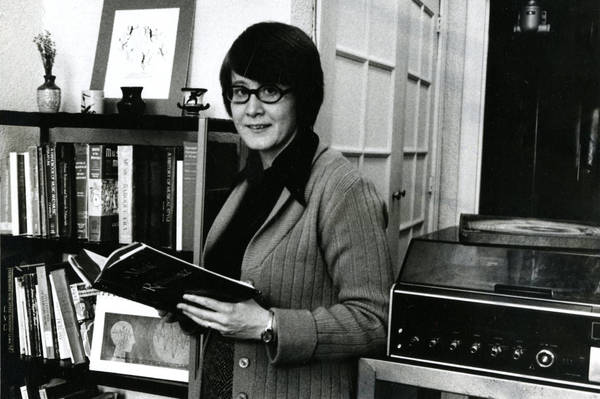
Sister Susan Coler, an administrator and teacher at Mundelein and attorney, discusses her associations with Catholic justice organizations and her work as a Catholic social reformer throughout the 1960s and 1970s. Sister Susan discusses the work of several Catholic organizations such as the Council of Catholic Women (CCW) and the National Catholic Conference (NCCIJ) within the context of “War on Poverty” federal programs. Sister Susan also mentions her working relationships with Father Jack Egan and Father Jack MacNamara.
-
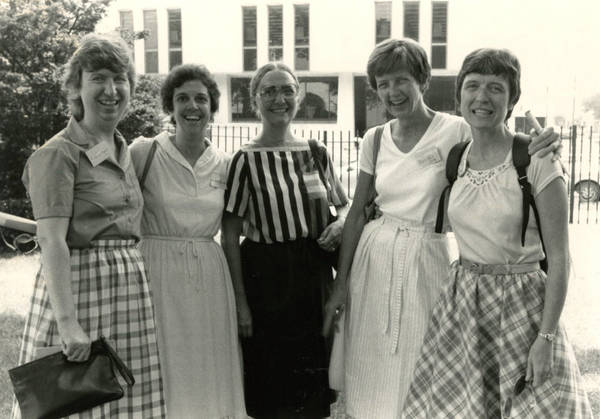
Dr. Moylan discusses with Tim Lacy her involvement with the Weekend College program at Mundelein College starting in the 1970s. She describes how the program was oriented towards adult students who had time on the weekend to attend school. Mundelein College faculty had to volunteer to be involved with Weekend College. Moylan utilized Mortimer Adler’s How to Read a Book to have students analyze Sigmund Freud’s Civilization and Its Discontents. Adult learning is now a staple at other institutions of higher learning in the Chicago region.
-
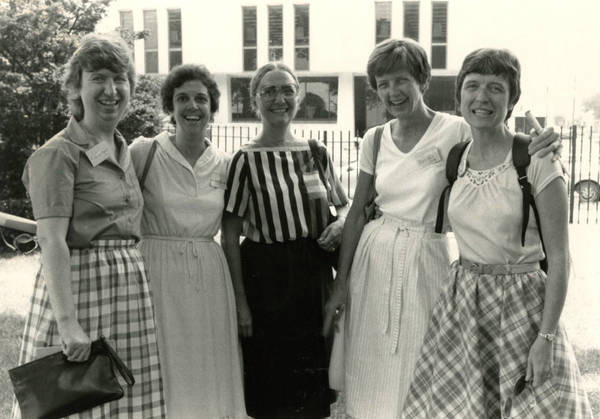
Dr. Moylan explains how she grew up in Northwest Indiana, joining the BVMs in 1959. The BVMs first sent her to Mundelein College from 1962-1964, then Guadalupe College in Los Gatos, California from 1964 to 1966 where she received her masters of arts at Stanford University, and became involved in the farmworker struggle with Cesar Chavez. She returned to Mundelein from 1966 to 1969. Moylan completed her doctorate at the University of Illinois. She returned in 1975, continuing to teach at Mundelein and later Loyola University. Moylan believes that the vision of Mundelein carries on through particular institutions on campus.
-
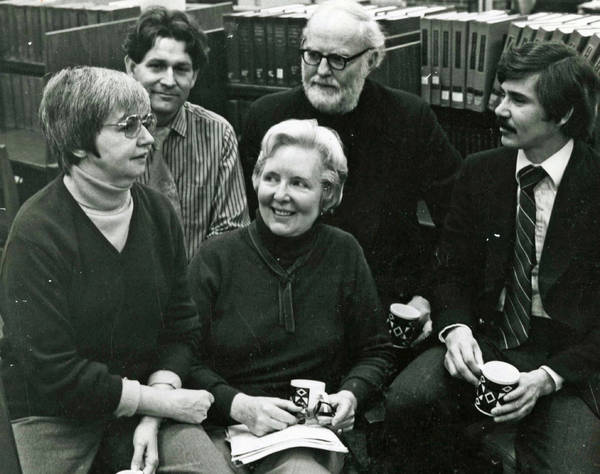
An instructor at Mundelein College, David Orr recalls his time teaching there. He grew up in Illinois, went to college in Iowa, and graduate school in Ohio. Orr started off as an activist-minded instructor, working for Upward Bound at Mundelein, and later teaching there full time. He was one of several progressive faculty, involved in Conference on the Curriculum, Experimental College, and Weekend College. Orr was an outspoken opponent of the Vietnam War, partaking in activism alongside students. In the 1970s, he left teaching for politics, becoming an alderman. Orr finishes, wishing that he could balance politics with teaching.

























